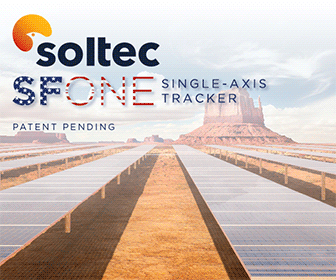SolarUS Collaborates with DuPont Tate & Lyle to Develop a New Improved Solar Thermal High-performance Heat Transfer Fluid
DuPont Tate & Lyle Bio Products has collaborated with SolarUS to launch a new biobased heat transfer fluid that will utilize Susterra® 1,3-propanediol (PDO), a high-performance glycol alternative. The new fluid, So-Blu, will offer solar thermal system owners freeze, corrosion and extreme heat protection resulting in increased system and equipment efficiency and lifespan.
Current solar thermal fluids are prone to a host of issues such as degradation that results in the formation of viscous deposits in the solar equipment, leading to a decrease in efficiency. However, So-Blu will offer higher thermal stability and protection against corrosion deposits, giving systems a longer lifespan and higher efficiency throughout the life of the system.
“This successful collaboration of our teams working together developed a fluid that can meet the demands of the newer higher performance systems in the market,” said Steve Elkin, CEO and founder of SolarUS. “These higher performance fluids are a critical component of solar thermal systems as higher temperatures and more demands are being placed on solar thermal production in applications like manufacturing, heating and air conditioning.”
“DuPont Tate & Lyle is pleased to offer SolarUS a renewably sourced glycol for use in So-Blu,” said Lirys Crawford, market development manager for DuPont Tate & Lyle Bio Products. “The qualities of Susterra®1,3-PDO glycol paired with the expertise of SolarUS have enabled the development of an innovative new fluid that will increase the efficiency and lifespan of solar thermal systems.”
Susterra® 1,3-PDO glycol is certified 100 percent biobased by the U.S. Department of Agriculture, making So-Blu an attractive fluid for solar thermal owners seeking renewable content in their products. A peer reviewed life cycle assessment (LCA) of Susterra® demonstrates that the production of biobased propanediol offers significant environmental benefits including up to 40 percent less greenhouse gas emissions and 40 percent less non-renewable energy used in production vs. petroleum-based glycols.
SolarUS
http://solarusmfg.com
DuPont Tate & Lyle Bio Products
www.duponttateandlyle.com









.jpg?r=4489)

.jpg?r=9708)
.gif?r=8101)